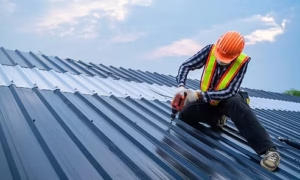Tetrahydrocannabinolic acid (THCa), the non-psychoactive precursor to THC, is gaining prominence across the European Union. While THC is often associated with the psychoactive effects of cannabis, THCa itself does not induce the same reaction. Instead, THCa offers potential therapeutic benefits without the high, making it a topic of increasing interest among medical and wellness communities.
In many EU countries, cannabis regulations are adapting to differentiate between THC and THCa. Malta, for instance, made headlines by becoming the first EU country to legalise adult-use cannabis in 2021, while other nations like Croatia have permitted medical cannabis use since 2015. As THCa is not psychoactive, it often falls under different regulatory scrutiny compared to THC, allowing for more flexible use in products like hemp-derived supplements and treatments.
Understanding the legal status and benefits of THCa in the EU is crucial for consumers and businesses navigating the evolving cannabis landscape. Despite varying regulations across member states, the trend towards distinct treatment of THCa and THC points towards a future where the therapeutic potential of cannabis can be harnessed without legal complications.
THCa Regulatory Landscape in the European Union
THCa, or tetrahydrocannabinolic acid, has various applications and implications within the European Union. The regulatory landscape for THCa is shaped by laws on cannabis, frameworks for industrial hemp, and specific guidelines for production and commercialisation.
Legal Status and EU Legislation
THCa falls under the broader legislative framework regarding cannabis in the European Union. Each member state has its own regulations governing the cultivation, distribution, and possession of cannabis products. Generally, THCa, as a non-psychoactive compound, remains loosely regulated compared to THC. EU-wide standards often seek to balance public safety with the evolving market for cannabinoid products.
Industrial Hemp and THCa
Industrial hemp, characterised by low-THC content, is a significant agricultural sector in Europe. THCa is naturally present in these hemp strains. Regulations permit the cultivation of hemp varieties with THC content below 0.2-0.3%. Farmers and producers must comply with European Cannabis Cultivation Standards to ensure the non-psychoactive nature of their crops is maintained.
Commercial and Medicinal Use
THCa holds promise for commercial and medicinal applications. Within the medical cannabis sector, interest in non-psychoactive cannabinoids is growing. The European Medicines Agency regulates medicinal cannabis and its derivatives. Full spectrum extracts, including THCa, are subject to rigorous quality control to ensure consumer safety and therapeutic efficacy. Products are tested for purity and consistency.
Extraction, Production, and Quality Control
Cannabis extraction methods are pivotal in producing high-quality THCa products. EU regulations mandate strict protocols for extraction to ensure products are free from contaminants. Full spectrum cannabis extracts often include THCa alongside other cannabinoids. Manufacturers must adhere to standards that guarantee the quality and safety of these extracts, ensuring they meet both industrial and medicinal requirements.
Market Trends and Consumer Behaviour
The cannabis market shows an increasing demand for THCa in EU . Consumers are increasingly seeking non-psychoactive cannabinoids for their potential health benefits. Companies like CannaXtrade offer rigorously tested THCa products that cater to this market demand. As awareness grows, market trends indicate a shift towards natural, unheated cannabis products that preserve THCa’s benefits.



































